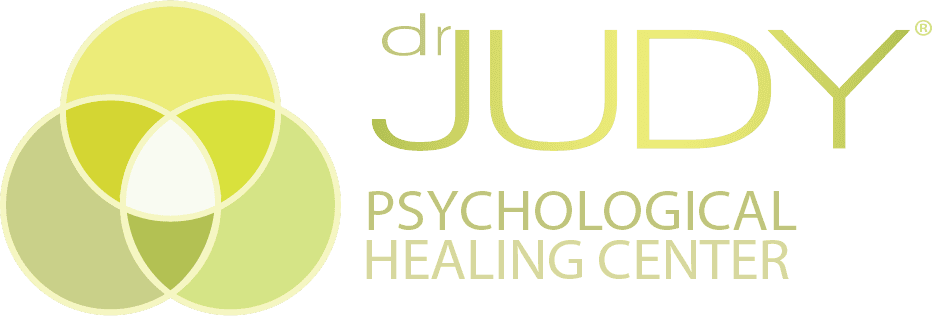GIFT OF BREASTFEEDING
Vesna Kocev BFPC CLC
Based on Dr Judy’s “Be the Cause Mind Map® System” and Dr John Bowlby’s “Attachment Theory” as well as my experience as a lactation counselor, I can easily say to all moms that there is no better gift a mom can give to her child than the Gift of Breastfeeding.
Dr. John Bowlby’s “Attachment Theory” explains how breastmilk, skin to skin contact, eye contact, and responding to a baby’s needs quickly, are some of the very important “emotional goodies” babies need for healthy development. We are wired for love. Kids need love to grow into healthy independent human beings.
 Dr. Judy’s “Be the Cause Mind Map System” talks about what can happened if babies do not receive those emotional goodies in early years. She is talking about mother-infant disconnect since birth, reactions to it, and negative core beliefs encoded into the psyche. One wound she emphases is the wound of NEGLECT. One way to neglect your child is to make the decision not to breastfeed. We all know that the natural way to feed your child is the best way. I really like the verse she quotes from Audrey Hepburn;
Dr. Judy’s “Be the Cause Mind Map System” talks about what can happened if babies do not receive those emotional goodies in early years. She is talking about mother-infant disconnect since birth, reactions to it, and negative core beliefs encoded into the psyche. One wound she emphases is the wound of NEGLECT. One way to neglect your child is to make the decision not to breastfeed. We all know that the natural way to feed your child is the best way. I really like the verse she quotes from Audrey Hepburn;
“The neglect and humiliation of a child by adult is a killer of trust, of hope and of possibility, is there anything more important than a child? Is there? Is there another time in your life when love, care, tenderness, food, and education is more important than in childhood?”
In my practice as a lactation counselor, I find that moms who choose not to breastfeed are usually moms who were not breastfed by their mothers and do not know much about breastfeeding. Some, unfortunately, are unable to breastfeed because they must return to work too soon after delivery.
There are some moms due to medical issues, who cannot breastfeed. In those cases, we have breast milk from milk banks, or infant formula as a last resort. In this article, we are focusing on organically healthy moms and moms who have the luxury of staying at home.
*Note: Dr. Judy and I both recognize that some women are not supported and nurtured and must return to work soon after delivery. This article is no way meant to guilt or shame those who are in this unfortunate position.
Before deciding how you are going to feed your baby, please take the time to educate and understand the difference between formula and breast milk. Remember that BABIES ARE BORN TO BREASTFEED.
What is Formula? Firstly, and very simply said, formula is not human milk. Formula is cow’s milk with some fats, protein, minerals and vitamins added. It is made in a factory and costs a lot of money. During the manufacturing process, the quantities of nutrients are adjusted to make them more comparable to breast milk. However, absence of antibodies and bioactive factors remain. Formula is the same all the time; it does not mature or change as baby grows.
I always say, “Cow’s milk for little cows; baby needs mamas’ milk.” After a baby is born and left on mom’s stomach, he or she smells and crawls to the breast and starts to latch. Mom’s milk smells exactly like the fluid of the placenta where baby lived for 9 months. We must listen to our baby and follow Mother Nature.
MOTHER NATURE IS PERFECT.
Have you ever seen animals feed formula to their babies? ☺
What is Breast Milk? Firstly, it is human milk. It is a living substance made by each mother for her individual infant. Breast milk contains all the nutrients an infant needs in the first 6 months of life including fats, carbohydrates, protein, mineral, vitamins and water. It is easily digested. Breast milk also contains bioactive factors such as whey protein, oligosaccharides, white blood cells, epidermal grown factor and many more ingredients that augment the infant’s immune system, providing protection against infections, and helping digestion and absorption of nutrients.
After 9 months in the womb, a baby is familiar with the taste of breast milk. They know what their mom is eating and are comfortable when hearing mom`s heartbeat.
Delivery is a big stress on the baby; it is the first human disconnect. Think about how a baby is feeling when suddenly exposed to many different voices and bright lights. You want to gradually adjust your baby to the new environment. Dr. Judy says that in order to have healthy independence you need healthy dependence.
Breast milk is rich in antibodies and protects the baby from all kinds of diseases. Studies show that breastfed babies are less like likely to become sick than formula-fed babies.
Also, breast milk is free; it does not cost a cent, cannot be duplicated in a factory and is very convenient. You have it everywhere you go, and you do not wash any bottles. Think about waking in the middle of the night and sterilizing and washing bottles. Definitely not fun.
One of the most wonderful characteristics of human milk is the way it is changes to meet your babies needs as he or she grows. If the baby is born prematurely, mother`s breast milk is different from the breast milk of a full-term newborn. Also, the milk created for a newborn is different from the milk 6 months later. All breast milk contains exactly the protective components and nutrients needed for the baby at every age and stage.
Colostrum is the first milk. It is a thick yellow milk that mother produces after giving birth. Sometimes mother can notice beads of colostrum on the nipple in the last trimester of pregnancy.
Colostrum is highly recommended to be given to the baby. It is high in antibiotics and is called “Baby’s first immunization.” It`s higher in protein, minerals, certain antibodies, and has less sugar and fats than the mature milk.
Colostrum comes in very small amounts. A baby’s stomach is the size of a marble at birth. As a baby’s stomach grows, mom produces more milk to meet her baby’s needs. We do not need to stretch the baby’s stomach with 1-2 oz of formula in the first days of the baby`s life. This is one of the main reasons for obesity.
Colostrum also helps with rinsing baby`s gastrointestinal track of meconium, the waste product accumulated before birth. This greatly reduces the risk of jaundice.
A little colostrum goes a long way! Do not waste it!
Mature milk comes in approximately 72 hours after the placenta is delivered. Moms often produce too much at first. After a couple of weeks, mom will produce exactly the amount her baby needs. The quality of milk mom produces increases with the baby’s weight and appetite until solid food is introduced and becomes a daily part of the baby`s diet.
Breast milk contains more than 200 elements with many more being discovered all the time. Many of these elements, including infection fighting white cells, cannot be manufactured.
Health Benefits of Breastfeeding for Your Baby
- Emotional bond between mom and the baby, which stays for the rest of the life.
- Lower incidence of infectious diseases, such as diarrhea, pneumonia, ear infection, respiratory track illness, UTI.
- Decreased rates of SIDS.
- Decreased risk in baby`s development of eczema, asthma and food allergies later in life.
- Improved dental health with less risk of tooth decay.
- Decreases rates of type 1 and type 2 diabetes, lymphoma, leukemia and Hodgkin disease in older children and adults.
- Also, the breastfed baby is exposed to different tastes and flavors of the food mom eats. This can influence food acceptance for life.
Health Benefits of Breastfeeding for Mom
- Baby is not the only one who benefits from breastfeeding. Mom is building her immune system as well.
- Physical and emotional connection between mom and baby.
- Helps mom to recover faster from delivery.
- Quicker uterine contraction to its pre-pregnancy size.
- Mom loses pregnancy weight faster.
- Decreases risk of breast and ovarian cancer.
- Lowers the risk of osteoporosis in the post menstrual period.
- Lowers the risk of postpartum depression and baby blues and many, many more benefits.
Knowing the importance of the connection between mom and baby, we do not want to disconnect our baby’s too soon after delivery. Dr. Judy talks a lot about putting the baby’s needs first. To prevent our kids from go through chaos, defenses and breakdowns, we are well advised to breastfeed for mental health. Studies show that breastfed babies are more independent later in life than formula fed babies. So, what to do?
- Educate about benefits of breastfeeding, and the risk of formula feeding your baby.
- Plan for breastfeeding success.
- Know where to find breastfeeding support.
- Identify a lactation counselor in advance of birth.
- Aim to breastfeed exclusively.
There is one last thing in this article I want to say. Study Dr Judy`s Mind Map® System. It is a great tool and life guide. Knowing and implementing the Mind Map System and understanding what can cause disconnection in early life will help you to prevent major life problems for your baby and generations after you.

